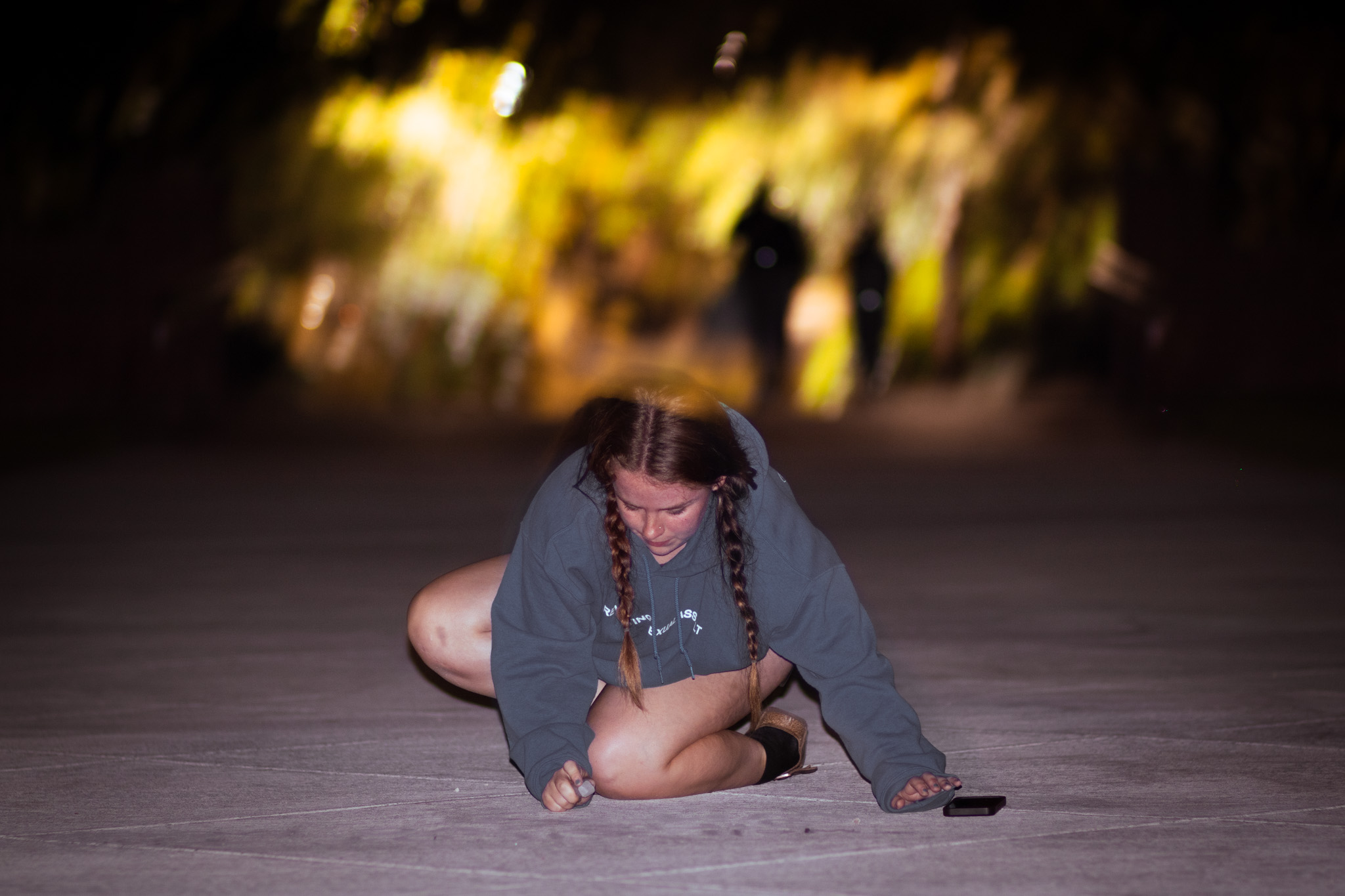“Who let you out of the house like that?”
That was one of more than 80 messages that the University of Maryland’s Preventing Sexual Assault organization chalked on sidewalks around this university’s campus on Wednesday night to raise awareness about street harassment — an effort that was met with mixed reactions.
The messages were part of PSA’s “Catcalling in College Park” project, where students anonymously submitted catcalls they have experienced in or around College Park, according to Anna Gerstein, a senior public policy major and PSA’s co-president.
Yet after some students reached out to PSA upset about the severity of the messages on Thursday, the organization issued a video apologizing for the project’s execution.
“Our intentions behind this event weren’t to hurt anyone,” said Damiana Colley, a PSA co-president. “But obviously, that has happened and we take full responsibility for that.”
The project is based on gender justice activist Sophie Sandberg’s “Catcalls of NYC” initiative, which also uses chalk to highlight stories of street harassment in New York City.
“We want to bring attention to the fact that [catcalling] shouldn’t be normalized and is still a fact of harassment and it still makes people uncomfortable,” said Colley, a senior criminology and criminal justice and psychology major.
This project is done in the fall because of the “Red Zone,” Colley said. This is the time between the start of fall semester and Thanksgiving break where more than 50 percent of all sexual assaults are statistically found to occur, according to the Journal of American College Health.
[UMD fraternity’s sexually explicit advertisement on Trolley Trail angers local residents]
PSA received more than 100 submissions for this initiative – more than double the amount it received when the project started in fall of 2021 – according to Colley.
The organization narrowed that list to about 80 responses by cutting out messages with vulgar language or extreme violence, Colley said. About 40 volunteers then chalked the messages near various parts of campus, including McKeldin Mall and South Campus Commons.
PSA members and other volunteers were split into groups and told by the organization to use their own discretion in deciding whether a message should be chalked. This also meant using asterisks to censor profane language, Colley said.
“We told those who are chalking to … basically put themselves in another person’s shoes walking by and [see] how they would read these messages,” she said. “Unfortunately, I don’t think that point was gotten across as well as it could have been or should have been.”
While some of the messages depicted instances of street harassment, others contained statements seemingly made during private interactions. At least one statement targeted a transgender person.
The messages were written so that people, specifically those who have harassed others, could realize that catcalling on this campus is a real issue, according to Brandee Kaplan, a junior women, gender and sexuality studies major and PSA co-vice president.
“We don’t mean that people should have to confront their trauma in the light of day,” Kaplan said. “People should have to confront their behavior in the light of day.”
After the chalking, Colley said that the majority of feedback the organization received from students, including survivors of sexual assault, was that the messages hurt or affected them.
[UMD community reflects on being named nation’s most LGBTQ+-friendly college]
One community member at this university called the police because of a chalk message, Colley said. However, officers responded on Thursday morning and determined there was no criminal misconduct, according to University of Maryland Police Department spokesperson Lt. Rosanne Hoaas. PSA still removed that message, Colley said.
Although PSA has done this project in the past, this year seemed to be the first with more criticism of the messages.
Colley said that in the future, PSA will only allow those already involved in the organization — rather than volunteers — to be involved in the chalking process of this project.
“We’re not going to apologize for our intention,” Colley said. “We’re apologizing for our execution.”
Sophomore government and politics major Stefano Raffo said that reading the messages was eye-opening for him as someone who has not experienced street harassment. However, Raffo said there must be a balance between spreading awareness and being mindful of how survivors of sexual assault may react to the chalk.
“It sometimes feels like [PSA is] raising awareness at the expense of survivors and not because of them,” Raffo said.
As of Friday, PSA tried its best to remove all messages that had been chalked on the sidewalks of this university, Colley said. The organization reached out to the volunteer groups to request that they remove the messages from the location they were assigned to.
However, because the catcalls were spread out around campus, finding and removing each one was difficult, according to Colley. She said she hoped that Friday night’s rainfall would also remove all the messages completely.
When freshman undecided engineering major Amira Abujuma saw the chalked messages, she said she first thought that someone was just writing mean statements on the ground.
“Then I kind of realized, the message and all of that, was because this is real stuff that’s said to real women all around,” Abujuma said. “And that’s definitely something that definitely hits close to home.”
In the Thursday video PSA released via Instagram, Kaplan said the organization will make major changes for the next project. This includes better filtering the messages, keeping submissions limited, holding the project in a centralized area and providing significant warning.
“As an organization, we are largely comprised of survivors and strive to be survivor-centered, but this time we did not do everything we put,” Kaplan said in the video. “This is our responsibility.”



